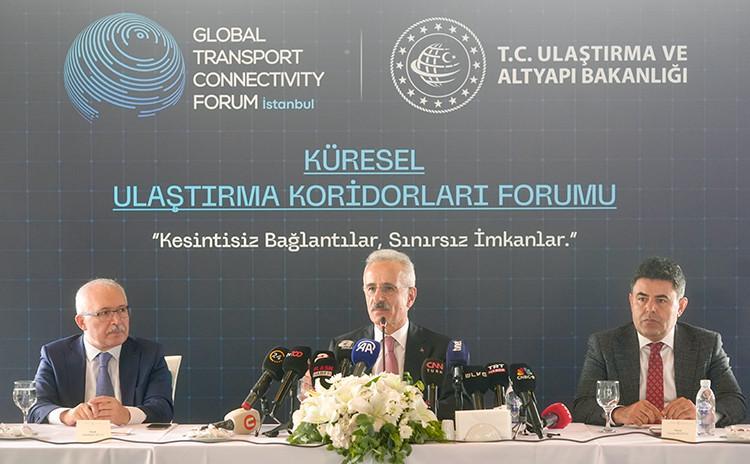
As a country with a strong geostrategic position, Türkiye should plan for alternative transit routes in case Iran moves to close the Strait of Hormuz, Turkish Transport and Infrastructure Minister Abdulkadir Uraloğlu has said.
Iran has continued to launch missile attacks in response to Israel’s June 13 strike on its nuclear facilities. Several reports last week said that one of Iran’s potential retaliatory actions could be shutting down the Strait of Hormuz — a chokepoint between Iran and Oman through which nearly 20 percent of the world’s daily oil supply, or about 18 million barrels, flows.
At its narrowest, the waterway is just 33 kilometers (21 miles) wide and serves as the main export route for Gulf oil producers including Saudi Arabia, the UAE, Iraq and Kuwait.
“In the event the Strait of Hormuz is closed, we must be equipped with both land and sea routes,” Uraloğlu told a group of journalists over the weekend.
“That’s why we’re taking necessary steps regarding both the Middle Corridor and the Development Road Corridor.”
The Middle Corridor, also known as the Trans-Caspian East-West-Middle Corridor Initiative, is a transport route that connects China to Europe via Central Asia, the Caspian Sea, the Caucasus and Türkiye. It is viewed as a key alternative to routes passing through Russia or the Suez Canal.
The Development Road, meanwhile, is a strategic initiative aimed at linking the port of Al-Faw in southern Iraq to Türkiye via road and rail, and onward to Europe. It is designed to become a new trade artery between the Gulf and Western markets.
“We are the only NATO country through which this 21-nation railway passes all the way to Europe. We must diversify alternatives such as the Middle Corridor and the Development Road,” Uraloğlu said.
Some 2,100 kilometers of the Development Road will pass through Türkiye, he said, pointing out an expected investment of around $24 billion for the project.
Turning to recent disruptions, the minister added that 11 Turkish aircraft are currently stranded in the region due to the ongoing Iran-Israel conflict.
“Seven of our planes are in Iran and four in Iraq,” he said. “These include seven aircraft operated by Pegasus, two by Turkish Airlines, one by AJet and one by Tailwind. We are closely monitoring the situation through the Foreign Ministry and the National Intelligence Organization.”